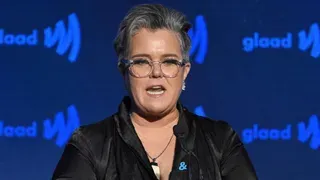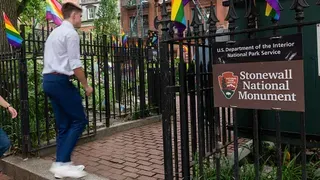September 1, 2017
Leather Events, September 1-17, 2017
Race Bannon READ TIME: 2 MIN.
Friday, Sept. 1
Sober Kink Together @ Castro Country Club
Officially a CMA meeting, but open to all Anonymous 12-step Fellowship members, 4058 18th St., 9:30pm. www.castrocountryclub.org
Gear Party @ 442 Natoma
Gear play party (leather, rubber, harnesses, etc.) for gay men. 442 Natoma St., $15 (requires $5 membership), 10pm. www.442parties.com
Saturday, Sept. 2
Woof! @ SF Eagle
Romp, play and socialize at this monthly pups and Handler mosh event. They have mats out to pup out on and snacks to munch on. 398 12th St., 3-6pm. www.SFK9Unit.org
Monday, Sept. 4
Ride Mondays @ Eros
A motorcycle rider and leather men night at Eros, bring your helmet, AMA card, MC club card or club colors and get $3 off entry or massage. 2051 Market St. www.erossf.com
Friday, Sept. 8
Sober Kink Together @ Castro Country Club
Officially a CMA meeting, but open to all Anonymous 12-step Fellowship members, 4058 18th St., 9:30pm. www.castrocountryclub.org
Gear Party @ 442 Natoma
Gear play party (leather, rubber, harnesses, etc.) for gay men. 442 Natoma St., $15 (requires $5 membership), 10pm. www.442parties.com
Friday, Sept. 8 - Sunday, Sept. 10
Mr. Bolt Leather 2018 Competition Weekend @ The Bolt, Sacramento
Attend the meet and greet, contest and victory BBQ and beer bust over this contest weekend. 2560 Boxwood St., Sacramento. www.sacbolt.com
Saturday, Sept. 9
Hell Hole SF @ SF Catalyst
Fist party for men. 1060 Folsom St. Doors open 8pm-12am, party ends 2am. $30. Students and Military with ID, $10. Volunteers get in free. http://hellholesf.com/
Sunday, Sept. 10
Leather Walk Beer Bust @ SF Eagle
Beer bust benefiting Leather Walk 2017. 398 12th St., 3-6pm. www.sf-eagle.com
Monday, Sept. 11
Ride Mondays @ Eros
A motorcycle rider and leather men night at Eros, bring your helmet, AMA card, MC club card or club colors and get $3 off entry or massage. 2051 Market St. www.erossf.com
Wednesday, Sept. 13
Golden Shower, Naked Buddies @ Blow Buddies
The men's water sports and naked night; $15 with membership, 933 Harrison St., 8pm. www.blowbuddies.com
Friday, Sept. 15
Sober Kink Together @ Castro Country Club
Officially a CMA meeting, but open to all Anonymous 12-step Fellowship members, 4058 18th St., 9:30pm. www.castrocountryclub.org
Gear Party @ 442 Natoma
Gear play party (leather, rubber, harnesses, etc.) for gay men. 442 Natoma St., $15 (requires $5 membership), 10pm. www.442parties.com
Saturday, Sept. 16
Alden Spafford Progressive Dinner @ SF Catalyst
The San Francisco Bay Area Leather Alliance annual Alden Spafford Progressive Dinner to kick off SF Leather Week 2017. 1060 Folsom St., 4-8pm. See www.leatheralliance.org for details.
Gear Up Weekend Play Party @ SF Catalyst
Friendly erotic space where kinky men can socialize with, learn from and play with other men. Proudly sponsored by SquarePeg Toys including demos. 1060 Folsom St., $20, 8pm-12am. www.gearupweekend.com
Sunday, Sept. 17
Leather Walk @ Jane Warner Plaza
Annual leather/kink walk that demonstrates leather pride as well as raises funds for Folsom Street Events and Positive Resource Center. 10am-3pm. www.leatherwalk.org







